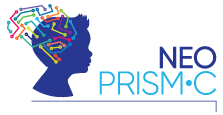Blog
Posted 07/12/2021
Why is rapid automatized naming related to reading?
George K. Georgiou, Department of Educational Psychology, University of Alberta, Edmonton, Alberta, Canada T6G 2G5
Rauno Parrila, Department of Educational Psychology, University of Alberta, Edmonton, Alberta, Canada T6G 2G5
Ying Cui, Department of Educational Psychology, University of Alberta, Edmonton, Alberta, Canada T6G 2G5
Timothy C. Papadopoulos, Department of Psychology, University of Cyprus, 1678 Nicosia, Cyprus, Centre of Applied Neuroscience, University of Cyprus, CY 1678 Nicosia, Cyprus
The objective of this study was to examine why rapid automatized naming (RAN) is related to reading by manipulating processes involved at the input, processing, and output stages of its production. In total, 65 children in Grade 2 and 65 in Grade 6 were assessed on serial and discrete RAN (Digits and Objects), Cancellation, RAN Yes/No, and oral and silent reading fluency. The results of regression analyses indicated that RAN is related to reading because both involve serial processing and oral production of the names of the stimuli.
Posted 05/12/2021
If medicine is a team game, patients should play too: a psychological perspective on patient engagement
G. Graffigna, Università Cattolica del Sacro Cuore, Italy
Healthcare professionals along the whole care journey must collaborate and coordinate their efforts for healthcare systems to function effectively. In other words, medicine requires teamwork to be successful. If we agree on this principle, then –adopting a sports metaphor –the patient too should be considered a player in the team!
The concept of patient engagement recognizes this, and it is an important ingredient for enhancing the effectiveness and sustainability of healthcare.
What is patient engagement?
